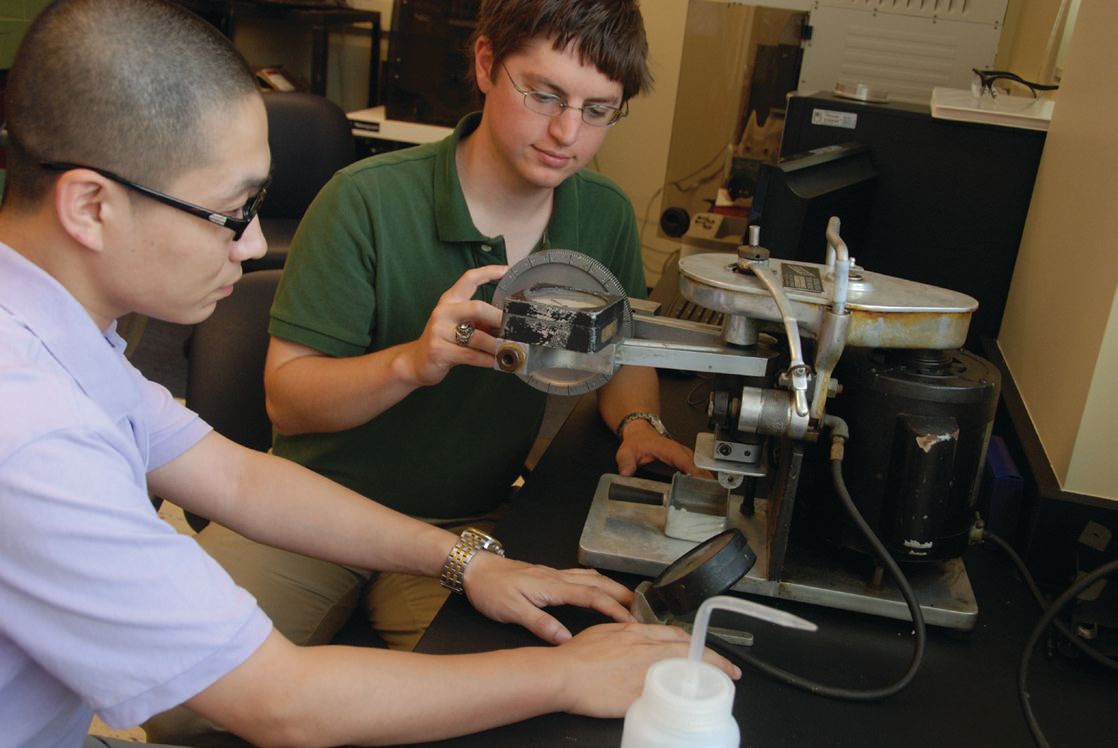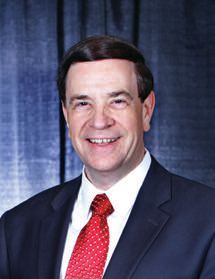Auburn’s historic program
Jerry P. Byers | TLT President's Report January 2013
The Alabama university offers North America’s first undergraduate minor in tribology.

The new Auburn program is really good news for STLE and any company involved in the fields of tribology and lubrication. (Photo courtesy of Auburn University/College of Engineering)
DURING THE 2010 STLE ANNUAL MEETING IN LAS VEGAS, I met with two members, Ralph Beard (Auburn graduate) and Dr. Robert Jackson (Auburn professor), who were excited about a new minor in tribology that they were planning to offer at Auburn University. Two years later, that program is a reality! The first class of students began the program in the fall 2012 semester.
This is really good news for STLE and any company involved in the fields of tribology and lubrication, because it is the first time that an undergraduate minor in tribology is being offered in North America (Tribology programs at other universities in the U.S. are for graduate and doctoral students).
Dr. Jackson took the lead role in establishing this minor at Auburn, and Mr. Beard has been its chief cheerleader and supporter. Ralph explained that the need is great and the timing is right because industry no longer offers the type of large training programs for new hires that were common a few decades ago.
The minor consists of five three-hour courses; three required courses plus two electives. The required courses are Friction, Lubrication & Wear; Rheology; and Organic Chemistry. The electives may be chosen from such courses as Introduction to Business and Engineering; Corrosion; Metalworking & Manufacturing; Boundary & Full Film Lubrication; or Macroscale Assembly and Applications of Nanomaterials.
The minor program has an advisory board that consists of Ralph Beard (Palmer Holland), Dr. Neil Canter (Chemical Solutions), Dr. Maureen Hunter (King Industries), Bryan Johnson (Palo Verde Nuclear), Mike Johnson (AMRRI) and Dave Millin (Elco). As you can see, STLE members have a major presence on the advisory committee.
In November I had the opportunity to visit Auburn University and found it to be a beautiful campus. I toured the facilities, including the tribology and corrosion labs and engineering buildings. Particularly impressive was the large new metalworking laboratory filled with machine tools for every type of operation.
Dean Chris Roberts (College of Engineering), Dean George Flowers (Graduate School) and several of the professors involved with the program took time to meet with me. Best of all, I spoke with many of the students! In one lab alone, three different students talked with me about their particular areas of research. One student was conducting experiments on the tribology of electrical contacts, a second was studying the benefits of nanoparticles as lubricants, and the third was conducting research on the properties of cartilage from different joints. Quite a range of topics for just one lab!
Besides the classes and well-equipped labs, Auburn students benefit from guest lectures by representatives from different areas of industry, tours of local manufacturing plants and participating in the new STLE Student Section. I was glad to speak at a meeting of the STLE Student Section and have dinner with its members. Several companies have expressed interest in making internships available to students in this new Auburn program.
STLE corporate members and others in the lubricants industry have a need for college graduates who have some knowledge of this field. I want to congratulate Auburn University for the foresight in setting up this undergraduate tribology minor and encourage consideration of offering a tribology major. I also encourage businesses to seek out the graduates from this impressive and timely new program.
 Jerry Byers is manager of research and development for Cimcool Fluid Technology in Cincinnati. You can reach him at jerry_p_byers@cimcool.com
Jerry Byers is manager of research and development for Cimcool Fluid Technology in Cincinnati. You can reach him at jerry_p_byers@cimcool.com.